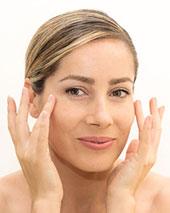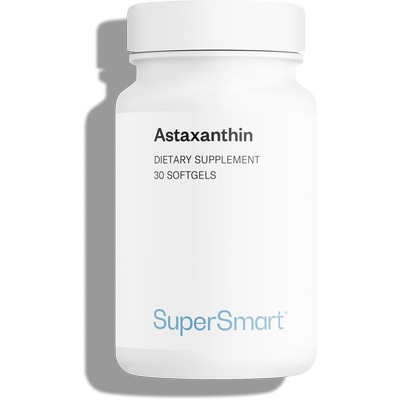24-06-2019
Ageing of the skin: the protective effects of astaxanthin
 Astaxanthin is a powerful natural antioxidant which continues to attract interest. Since the publication in November 2016 of our article entitled Astaxanthin - an exceptionally powerful antioxidant, further studies have revealed new benefits for this natural pigment. In 2017, we discussed its cardio-respiratory benefits. Now, in this latest Nutranews article, we explore the compound’s protective effects against skin ageing, with a close look at the results of a Japanese study which has confirmed astaxanthin’s efficacy for fighting the UV damage that everyday poses a significant threat to our skin.
Astaxanthin is a powerful natural antioxidant which continues to attract interest. Since the publication in November 2016 of our article entitled Astaxanthin - an exceptionally powerful antioxidant, further studies have revealed new benefits for this natural pigment. In 2017, we discussed its cardio-respiratory benefits. Now, in this latest Nutranews article, we explore the compound’s protective effects against skin ageing, with a close look at the results of a Japanese study which has confirmed astaxanthin’s efficacy for fighting the UV damage that everyday poses a significant threat to our skin.
Powerful antioxidant effect against photo-ageing of the skin
Natural antioxidants such as astaxanthin are highly-valued in dermatology because they combat the accumulation of free radicals which cause substantial damage to the skin. In this study, the Japanese researchers set out to evaluate astaxanthin’s efficacy in preventing photo-ageing of the skin – the damage caused by exposure to the sun’s rays.
Amazing effect against UV rays
To understand how astaxanthin prevents photo-ageing of the skin, we need to know what happens at a cellular level when the skin is exposed to ultraviolet rays. Such radiation primarily triggers the secretion of matrix metalloproteinases, enzymes which cause the skin’s collagen and elastic fibres to degenerate.
This enzymatic activity plays a part in the development of the early signs of skin ageing and may be induced and increased by the generation of free radicals and inflammatory cytokines. It is astaxanthin’s potential to combat this process that these researchers were investigating. This natural pigment has significant antioxidant potency for fighting free radicals as well as anti-inflammatory action for suppressing inflammatory cytokines.
Promising results from in vitro and in vivo tests
To confirm the dermo-protective effects of astaxanthin, the Japanese scientists began by conducting in vitro tests on human keratinocytes and fibroblasts. These showed that astaxanthin was able to suppress the secretion of inflammatory cytokines and matrix metalloproteinases during exposure to UVB rays.
To corroborate these promising findings, the researchers then conducted an in vivo study among a group of 65 healthy women. Subjects were divided into three groups:
-
- the first – a control group – was given a placebo;
- the second received 6mg of astaxanthin a day;
- and the third 12mg of astaxanthin a day.
The results obtained from in vitro and in vivo tests are promising. Supplementing with astaxanthin appears to help protect skin cells from photo-ageing. These tests are also consistent with the many studies conducted on astaxanthin demonstrating its antioxidant potency, protective effects and anti-ageing action. Given the strong protective potential of this active principle, astaxanthin has been available in nutritional supplement form for many years. Providing optimal efficacy, SuperSmart offers a formulation based on astaxanthin enriched with other antioxidant vitamins.
> Source :
1. K. Tominaga et al., Protective effects of astaxanthin on skin deterioration, J Clin Biochem Nutr, Juillet 2017, 61(1): 33–39.
Order the nutrient mentioned in this article
Further reading
07-06-2016
Imagine a nutrient that could prevent wrinkles, slackening and ageing of the skin, not just on the face (eyelids, cheeks, lips) but also on the...
Read more10-08-2016
A true sign of the passing years, wrinkles are the inevitable consequence of ageing of the skin. Mrs Smith, a strong-minded woman in her fifties,...
Read more04-03-2019
Essential for good health, vitamin D is primarily known for its vital role in mineralising the bones, joints and teeth. Its effects on the immune...
Read more© 1997-2026 Fondation pour le Libre Choix
All rights reserved
All rights reserved
Free
Thank you for visiting our site. Before you go
REGISTER WITHClub SuperSmart
And take advantage
of exclusive benefits:
of exclusive benefits:
- Free: our weekly science-based newsletter "Nutranews"
- Special offers for club members only


















